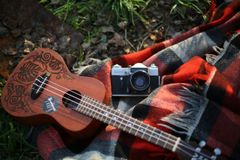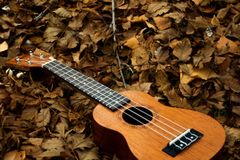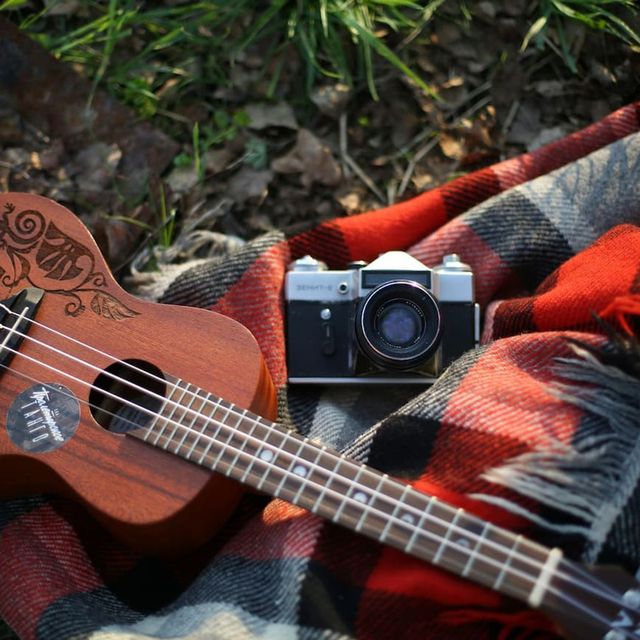Join Our Musical Community
Welcome to Uke Group North! We provide inclusive ukulele workshops across Greater Manchester and Lancashire, creating a welcoming community through music. Whether you're a complete beginner or an experienced player, there's a place for you in our groups.
Weekly Sing & Strum Sessions
Our popular "Sing & Strum Sessions" are held every week. Bring your own ukulele or borrow one of ours - everyone is welcome!
Current Sessions
-
Mondays at Greenmount Old School
Mondays - 10:15am-11:15am
Greenmount Old School, Brandlesholme Road, Bury, BL8 4DS -
Thursdays at Wyldes
Thursdays - 6:30pm-8:00pm
Wyldes, 4 Bolton St, Bury, BL9 0LQ -
Tuesdays at Ramsbottom Library
Tuesdays - 10:30am-12pm
Ramsbottom Library, Carr St, Ramsbottom, BL0 9AE -
Tuesdays at The Den
Tuesdays - 5:30pm-7pm
The Den, 6 Stubbins Vale Road, Ramsbottom, BL0 0NT
To book your place, get in touch via our contact page or drop us a message.
What We Offer
- Beginner workshops - Learn the basics with our friendly team
- Weekly group sessions - Play your favourite songs together
- Instrument loan - No ukulele? No problem! We have instruments to borrow
- All ages welcome - From children to seniors, everyone can join
- Community focused - Build friendships and connections through music
One-to-One Lessons with Ben
Looking for personal tuition? Ben, our founder, group facilitator and experienced musician with over 20 years of musical experience (playing various musical instruments, including piano, guitar and bass guitar) offers one-on-one ukulele lessons for learners of all ages.
Ben's teaching style is friendly and laid-back while also being competant with more traditional approaches to teaching music, beginners or those wanting to improve their technique or brush up on some music theory are sure to learn.
Being able to travel to your location within approximately 30 miles of Ramsbottom making him easily accessible for people throughout Bury. Remote lessons are also available via Zoom call if you are located a little further away.
Lesson prices:
- 30 minutes: £20
- 60 minutes: £30
Why Choose Ukulele?
Some of the pros...
- Shallow learning curve
It's easier to get started playing the ukulele than alot of other musical instruments
- Portable and affordable
With prices starting at around £40 for a soprano ukulele it's a cheap way to start playing music
- Perfect for group playing
An enjoyable activity to do together with friends and family
- Great for all ages
From young children to the elderly and everyone inbetween, this instrument can bridge generational social gaps in communities and families
- Fun and uplifting!
You only have to play your first chord to experience this
...and some words from the pros...
"The ukulele is the instrument of peace." -Israel Kamakawiwo‘ole
“The ukulele is the perfect instrument for someone with a restless heart, because it travels easily through space. But it also travels through music easily and effortlessly. It slips through borders so fluidly. I’ve never had the heart to say no to the ukulele. When it feels like going somewhere, we just go there.” —James Hill
"Everyone I know who is into the ukulele is 'crackers,' so get yourself a few and enjoy yourselves." -George Harrison
"If everyone played the ukulele, the world would be a better place. There's something about the ukulele that just makes you smile. It makes you let your guard down." -Jake Shimabukuro
“Now everybody's got a crazy notion of their own. Some like to mix up with a crowd, some like to be alone. It's no one else’s business as far as I can see, but every time that I go out the people stare at me, with me little ukulele in me hand” -George Formby
Get Started Today
Ready to join our musical community? Contact us to book your first group session or enquire about individual lessons.
Our Locations
Our lessons are in Ramsbottom and Bury, but you might also want to attend if you're in Manchester, Bolton, Blackburn, Rochdale, or anywhere else in Lancashire. Many of our members travel from surrounding areas to join our friendly community sessions.
Download Our Songbooks
We've created songbooks for our sessions - download them free from our "learn" page. Available collections include:
- Junior Songbook - Perfect for younger players and beginners
- UGN Songbook - Our main collection for workshops and sessions
"Music gives a soul to the universe, wings to the mind, flight to the imagination and life to everything" - Plato
Latest Posts

New Ukulele Workshop Series Starting
Dec 1, 2024
Weekly sessions for all skill levels

Welcome to Uke Group North
Jan 15, 2024
Join us for ukulele fun!


